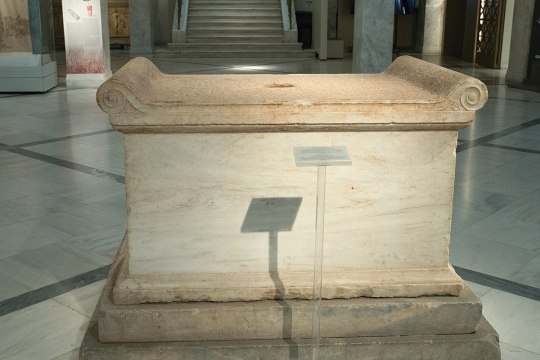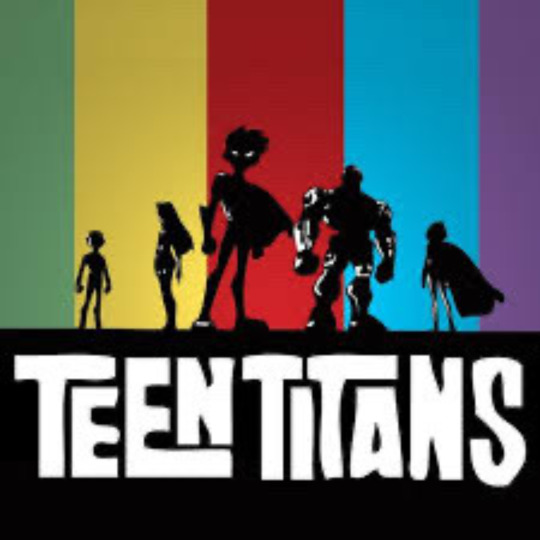#building kharis
Explore tagged Tumblr posts
Text

silly building sketches for my dnd characters town
#digital art#artists on tumblr#digital aritst#dnd#building#environmental art#this is specifically for vasil#he is from a town called khari hoho#dnd art
1K notes
·
View notes
Note
🕸️ Arachne - which god do you turn to to learn to face your fears?
(also thank you so much for the kind words on your reblog! it means a lot!)
hi hi!! thank you for the ask! love your blog, super excited to see a new face here, especially a poseidon worshipper!!! as for your question, it's a great one. i try to call on the theoi for their appropriate domains -- if i have a fear that might relate best to one of their epithets, i'll call them first. that being said: by and large, i probably call on apollon and aphrodite the most to help me learn to face my fears. i'm especially fond of apollon's healing and evil averting aspects when i'm having a tough time with my mental health; more or less same for aphrodite. i like the epithets paean, akesios (apollon) and apotrophia (aphrodite) especially for this. i take a lot of courage from the story of apollon slaying the python. if he can fight a dragon and carve out a place for himself, then i can face whatever mortal thing is troubling me. (i know myths aren't literal, but we can still draw inspiration from the stories) i also find that athena especially really helps me face my academic fears. i can be a little intimidated to approach her due to internalized shame about whatever's going on, but she always, always comes through for me. i like to use her epithet mentore especially when i need her guidance on this kinda stuff. so much love in my heart for pallas athene <3 thank you again for the ask!!!! i hope you have a lovely day, and may the theoi watch over you and bless you <3 (original post if anyone else wants to send asks)
#my post#my asks#thank you again for this ask!!#and seriously love your blog. super excited to have another recon mutual#and i think poseidon is often an underappreciated theoi in the modern sphere#so im deeply grateful to have more worship related content for him#funnily enough im working on building my kharis with him more lately. im pretty landlocked so i've never had a much of a chance to say hi#but im enjoying worshipping him quite a lot#anyway i have rambled in the tags too#gods bless you feel free to dm me anytime
2 notes
·
View notes
Text
What to put in your hellenic journal and why it helps
Building a kharis with gods using a religious journal is really helpful. It helped me keep my information and my thoughts related to the Gods organized. It can also help beginners if they are uncomfortable reciting hymns out loud.
What could be put inside it:
Every day write one delphic maxim and write how you interpret it or what you think about it
Make a shopping list for your altar and offerings
Compose prayers
Hymns/ prayers to your patrons and Hestia, Nyx, Helios, Hypnos
Write something as if you are conversating with the Gods.
Important information on deities
Favorite offerings, incenses, and libations of the Gods
Important Callendar events, festivals, and key info on celebration
Quotes from the most famous books of Gods that you relate to or want to remember
Instructions on composing prayers
What afterlife means in Hellenismos
What defines hubris, agos and miasma
7 pillars of Hellenismos and their meaning
Do some drawings for the Gods as a devotional act
Include your personal experiences with the divine and how it affected you
Write down the signs you saw during the week
You can also decorate it with the images of Gods
Delphic Maxims:
https://www.tumblr.com/bluemorfedbutterfly/746793310790828032/delphic-maxims-pt1-the-delphic-maxims-are-a?source=share
#hellenism#hellenic pagan#hellenic polytheism#hellenic deities#deity work#offering#deity worship#greek gods#greek mythology
2K notes
·
View notes
Text
I saw a Reddit post the other day with someone saying they have a really emotional deep connection moment with Aphrodite and were asking how they can thank her and someone responded “Your love and devotion are enough for her,” noooooooo please for the love of the Gods offer her something it could be anything—a glass of water with a prayer—literally anything
In pagan culture GLOBALLY reciprocity is a stable in worship, in hellenic polytheism/paganism it’s the concept of Kharis or “I give so that you may give” building a connection with the Gods is based in offerings, it’s not bribery or a gum ball machine, it’s giving a piece of yourself or a representation of a piece of yourself in gratitude and praise, I personally don’t pray unless I’m giving an offering or promising that I’ll offer later,
If you’ve had a meaningfully deep moment with the Gods please I’m begging you, you have to Show your devotion it’s not just a feeling in your heart
And an offering could literally be anything with that intention—dance, singing along with a song that reminds you of said God, a glass of water poured out on the ground (libations), Incense, food—and this isn’t just Hellenic polytheism it’s across cultures world wide. I’m not advocating for strict reconstruction cause I’m far from that, there are real spiritual experiences that haven’t involved offering but we have to remember this isn’t Christianity the Gods don’t just love us unconditionally, worship is building a relationship with them so that you can share a bond with them, that’s probably controversial, as far as my own experience the Gods enjoy getting to know us or they wouldn’t, they love having reciprocity with us, and as we build relationship with them I believe just like any relationship a type of love can be formed
Tldr: please offer to your Gods
maybe you offer to your Gods once a week or once a day but pray to the without an offering sometimes I can’t police your practice but I believe you’ll grow closer to your Gods if you bring offering into your practice
399 notes
·
View notes
Text
Altars in Ancient Greece
A disclaimer before we get into it: this is a brief explanation of how altars functioned in ancient Greece. I am not telling you how you should set up your own personal altar(s). Rather, I hope this can serve as foundational knowledge for you to consider while figuring out what works best for you and your practice.

Pentelic marble altar from the ancient agora of Athens. Dedicated by the Athenian Boule to Aphrodite and the Graces. c. 194-193 BCE.
The purpose of the altar is to receive offerings for the deity. It is the sacred place where worshipers pour their libations of wine, deposit their gifts of fruit, honey, or cakes, and burn a portion of the sacrificial animal. Offerings in ancient Greece were a key component of religious life; it is how mortals express their honor and build χάρις (kharis, favor). The altar is a highly important point of contact with the divine, and is an essential physical element for any cult to be established.
In fact, we can determine whether or not a deity was worshiped in ancient Greece based on if there were any altars dedicated to them. A god or daimon with no altars was very likely only part of the mythological or literary tradition and did not receive any sacrifices or worship. Altars were generally dedicated to one god or a group of related deities. In rarer cases, they may be dedicated to the whole pantheon (example: the Altar of the Twelve Gods in the Athenian Agora).
An altar for a heavenly (ouranic) god would be a raised surface or pedestal, and it would be oriented towards the East. The typical Greek altar consisted of bricks which were white-washed with lime, or it was carved from stone such as marble or limestone. They could be plain, or they could be decorated with volutes and narrative scenes. They often had the name of the deity inscribed into them. Altars could also come in a variety of shapes, the only real requirement being that the surface on top was flat so it could hold the offerings.
More prominent cult sanctuaries may feature a large, elevated altar with steps leading up to it. There were also natural rock altars, or in very rustic sanctuaries, a collection of stones was grouped to form an altar. If one was worshiping a khthonic god who dwells on or within the earth, they would provide sacrifices at a low-lying altar such as an eschara, or a simple open pit called a bothros.
Indoor altars were very uncommon. At sanctuaries, the altar would be outside of the gods temple, often in front of the entrance. Though a sanctuary could contain several altars and sacrificial sites. Households would have had one in their courtyard for private worship. Other altars were located outside of public buildings or in community gathering places like an agora.
The reason for being outdoors was so that the gods who reside in the sky could observe the sacrifices being made and enjoy the rising smoke of the incense. Meanwhile, a libation poured directly onto the bare earth would seep down below to the khthonic gods. Every altar was ceremonially sanctified when its first sacrifice was performed; from then on, it was considered part of the property of the deity.
Below are my sources. I'll likely make a part two of this post where I go over some ideas for how we can construct our modern altars. Thank you for reading!
Ancient Greek Religion, Jon D. Mikalson
Greek Religion, Walter Burkert
Ancient Greek Cults, Jennifer Larson
#if you find any mistakes pleeeease let me know so i can correct it#hellenic polytheism#hellenic reconstructionism#helpol#ancient greek religion#hellenic pagan#greek gods#hellenismos
156 notes
·
View notes
Text
I can't believe Teen Titans is officially 20 years old today. My favorite animated show and one of the best imo. It got me through a lot of shit & means the world to me

Starfire- the Heart
My favorite character on Teen Titans, and still my favorite hero.

A joyful person who loved the world around despite its cruelty. An immigrant who loved her culture yet always struggled w/ her sense of place and being an outsider like me. Her journey becoming more sure of herself & her place & an advocate for other outsiders like Red Star is beautiful one.



Cyborg- The Lynchpin
A extroverted, disabled black hero who had a deep internal struggle to accept that his disability doesn't contradict, but strengthens his humanity

His main arc on what it means to be a 'man' - that he doesn’t have to prove anything to anyone but instead be sure of himself. As a black hero, his defiance being rewarded, not shamed, resulting in victory in the end is still one of my favorites TT03 arcs



Raven- The Inspiration
When I was younger, I was embarrassed to admit how much I was like Raven bc I hated feeling like a closed-off outcast.

But now understanding Raven as a closed-off person who hid her emotions in spite of how she cared (which was the most out of anyone) to protect everyone. Who constantly fought for good despite being deemed a curse bc she hoped for better- Raven is an inspiration


Her journey to accept her emotions & forge her own destiny and not give into despair is one of the best arcs in all animation


Beast Boy, the Wild Card
To be honest, I despise his immaturity when I was younger.

Now I know he was just a kid trying to be happy despite his hardships (like terrible parentals & Terra).
His season of growing up, learning to let go, and building a team of underrated/inexperienced heroes like himself to defeat Brotherhood of Evil against all odds when all hope was lost was peak



Robin- the Leader
Finally, the Boy Wonder, what else is there to say?

A character so flawed, struggling w/ anger, darkness, and obsessiveness, but will go to war for his friends, & sacrifice all for those he loved.
Learning to let people in and that he can be more than hero. Best Robin adaptation we have seen.




Not just the core 5, but the entire Titans family was amazing. Characters who left an impact despite limited screentime. Más y Menos, Thunder and Lightning, Titans East, Speedy, Hotspot, Kole, and too many to name. With the best Bumblebee we have ever had in any media.


Thank you so much to Glen Murakami, David Slack, Amy Wolfram, Sam Register, Derrick Wyatt (RIP), Scott Menville, Hynden Walch, Khary Payton, Tara Strong, Greg Cipes, and so many countless others in the cast & crew for giving this to me and so many others.


Forever grateful for the Titans' stories & memories & for Robin, Cyborg, Starfire, Raven, and Beast Boy
#teen titans#starfire#dc robin#koriand'r#robin#dc#beast boy#raven roth#raven dc#cyborg#bumbleebee#dick x kory#dick grayson#dickkory#raven teen titans#teen titans go#raven#beast boy x raven#terra#teen titans 2003#kory anders#titans#dc comics#robstar#vic stone#garfield logan#rachel roth#beast boy x terra#beast boy teen titans#victor stone
998 notes
·
View notes
Text
I think something that isn’t talked about enough (which makes sense bc a lot of this religion is about building kharis with the gods) is knowing when you need to step back for a bit.
I’ve unfortunately taken a pretty big hit to my mental health which has meant I haven’t been able to do my devotional activities to Apollon as effectively. I kept pushing myself to keep at it even though I was not in the right mindset for it at all, and it made me feel worse. I felt like if I stopped I wouldn’t be a “true” devotee and would be letting my god down.
But tonight I came clean to him about everything and we talked it through. I asked whether he thought I should take a break. The answer was a definitive yes. He will not think any less of me and will still be waiting for when I get back.
So now I’m going to focus on myself and getting better, however long that takes.
For anyone else struggling, please talk with your gods about it. They won’t think less of you if you need a break. After all, how can you be there for them if you’re not able to be there for yourself?
#pls prioritise yourselves guys is what I’m trying to say#hellenic polytheism#hellenism#pagan#paganism#apollon deity#apollon devotee
44 notes
·
View notes
Text
I drew Hestia. So far, I'm still learning how to worship and such... but as a whole, I've figured that:
A. Making art in Their image or Their honor is an offering, or devotional act. Therefore it is good to build kharis with Them.
B. The Ouranic Gods seem to appreciate it when a worshipper starts with Hestia first. Something about paying respect to the rather quiet Eldest Sister who ensures They're all loved and cared for.
Being the eldest sibling, especially the oldest daughter, has a reputation for becoming an extra parent. I've lived that truth, and to a degree, still do. I understand why Hestia sits at the hearth on Olympus and keeps the fire going.
I get it.

#hellenic deities#hellenic pagan#hellenism#hellenic#hellenic polytheism#hellenic polytheist#helpol#deity work#hellenistic#hestia
39 notes
·
View notes
Text
Do We "Work With" the Gods?
Lately I've been seeing #witchblr posts in my feed more often. Honestly, it’s incredibly exhausting to see witchcraft treated as synonymous with pagan/polytheist/non-Christian practices when it isn’t. Worship is not witchcraft and witchcraft is not worship. Wicca is it’s own belief system, and it deserves to be respected as such.
Worship of the Theoi isn’t witchcraft—it’s prayer, devotion, faith. Sure, a spell can be an act of prayer and worship, but that doesn’t mean prayer and worship of the gods is witchcraft too.
It’s just frustrating to see how prevalent neopagan/Wiccan concepts and ideas are in the pagan/polytheist community. It breaks my heart to see young polytheists afraid to pray or give offerings because they’ve been convinced that “deity work” or “working with” a god is dangerous, difficult, or required to even approach the gods.
The Theoi are present and real. We can and should ask them for help, and build kharis with them. Building a devotional relationship with the gods does require work, but that doesn't mean we are "working with" the gods in the same manner as witchcraft practitioners, nor do we have to.
Religion is not a dirty word. Faith and prayer are not exclusive to Christianity or Abrahamic faiths. We do not have to practice witchcraft to be valid pagans or approach the gods. Worship of the gods is open to all. The Theoi are with us; pray, and have faith they will listen.
#hellenic devotion#polytheist#hellenic prayer#prayer#saturday thoughts#witchblr#hellenic reconstructionism#hellenic polythiest
643 notes
·
View notes
Note
HELLO MY SIBLING IN HERMES!!! i have a question
you've mentioned before that you have a devotional journal !!! how do you keep it and what things do you write in it :( <- guy who wants to start but is clueless
ISAAAAA MY SIBLING!
i have two main ones; a physical one and a digital one.
my digital one is on an app called Notion and that shit is organised by deity, time and date. i tend to write whatever interactions i have with the Gods in it, and each conversation has a different page. for example, if i talked to Athena and Hermes in one day, i'd date the entries and write two separate ones.
my physical one is much more disorganised and it's where i keep a lot of my research, opinion pieces, prayers, lists, thoughts, etc. i do tend to copy up my favourite entries into my digital journal, though!
as for starting out, i'd say do an "about me" piece. i have a page just saying who i am in general. likes, dislikes, anything in that vein. any thoughts you have about your deities, anything worth noting down, shopping lists for altars (i have my Christmas list in there!), anything really!
another tip, write letters directly addressed to your deities, as if you're speaking to them. it helps build kharis, and is a good way of updating them if something goes wrong or right.
thanks for the ask Isa, my dearest sibling in Hermes, have a wonderful day!!!
#isa <3#hellenic polytheism#helpol#hellenism#hellenic pagan#el answers#hellenic journal#journaling#devotional journal
32 notes
·
View notes
Text
Worship Wednesday
Communicating with your deities is important, especially when it comes to Lord Hermes. Communication is his domain. When you talk to your deities and spend time with them, you slowly build up kharis with them. This is important because it strengthens the bond between you and Lord Hermes. You can communicate to Lord Hermes through whatever means feels best. A few ideas would be through writing, talking out loud or in your head, and divination.
This week’s question: What’s your preferred method of communication with Lord Hermes?
This week’s challenge: Try to communicate with Lord Hermes using your chosen method over the next week. Don’t be discouraged if there’s seemingly no response. It's not a sign of anger. He does hear you, I promise.
27 notes
·
View notes
Text
Delphinia
~ 6 (or 7) Mounykhion ~
Celebrating Apollon and Aretmis, Delphinia kicked off with unmarried girls proceeding to their shrine/temple on the bank of the Ilissos River.

Girls carried branches of olive wrapped in white wool in honor to Apollon. Delphinia is thought to be in dedication to Apollon as a god who controlled the sea and fair travel as Theseus had prayed to him for his fallen companions before he set sail.
While in mythos Theseus is connected to Apollon it is more likely that this day was in celebration to his twin, Artemis, as it falls on her holy day. In this sense, the women asked for Artemis' protection and favor. Similarly, maidens were associated with Artemis, not Apollon.

Modern Hellenist can observe this day by celebrating both the Twins, though I recommend separate. An unmarried women might wish to offer to Artemis for protection and Apollon for fair travels. Men and non-binary people might wish to offer to Artemis for thanks for the protection of women, good hunting, travel at night, or anything else and Apollon for fair travel. You may also wish to thank the Twins for anything they might have done recently for you, or simply offering in thanks to build Kharis.
Traditional Offerings:
Offering of Olive branches in white wool (or yarn/ribbon)
Symbols of Artemis (deer, bows, arrows, antlers, the moon)
Symbols of Apollon (the sun, chariots, bows, arrows, lyre, poetry)
Traditional Acts
Offerings to Artemis and Apollon as Twins
Offerings to Artemis as the protector of unmarried women and young girls
Offerings to Apollon for fair travel
Singing Hymns to the Twins
Khaire Artemis! Khaire Apollon! 🌘🏹☀️
#hellenic polytheism#hellenic witch#hellenism#hellenic deities#hellenic polytheistic#hellenic worship#hellenistic#theoi#helpol#artemis#lady artemis#artemis festival#artemis deity#apollon#apollo#apollon worship#apollon deity#apollo deity#apollo worship#lord apollo#artemis and apollo#delphinia
47 notes
·
View notes
Text
.𖥔 ݁ ˖Introduction ˖ ݁𖥔.
Hello! This sub-blog is specifically dedicated to my worship and journey with Hellenic polytheism, including any modern media derived from Hellenic mythology. This blog is SFW but may contain artistic nudity.
.𖥔 ݁ ˖ Basics 🕯️
Name :: Pavlova 🍓
Gender :: Fluid 🌊
Pronouns :: All, including neos 🌈
Age :: 19 🕰️
Time Zone :: GMT 🇬🇧
.𖥔 ݁ ˖ Loves ❤️🔥
Cartoons 📺
Musicals 🎶
Original characters 🗣️
.𖥔 ݁ ˖ Interests 🔥
Reading & writing 📖
Drawing ✍️
Crochet 🧶
.𖥔 ݁ ˖ Extra ✨
New to Hellenic polytheism 👶
No alter or candles currently 🏠
Building kharis with Lady Hestia 🔥

#intro post#introduction#blog intro#hellenic polytheism#hellenism#greek mythology#ancient greek#hestia#hellenic worship#goddess worship#deity worship#hellenic polythiest#hellenic deities#hellenic devotion
17 notes
·
View notes
Text
fun little life rant/reflection
this ended up being a lot longer than i was going to write, oops!
i've been having a bit of a rough time with my mental health lately (hence the relative silence on here), and because of that, i haven't had the energy to properly pray to Dionysos. it's been a bit upsetting for me to have gone so long without doing so. a few nights ago, i didn't even pray, but simply thought about praying to, Dionysos Eubouleus for some help.
and things did get better. not automatically, not so drastically that i noticed it the day of, but they did get better. the first thing that happened after praying to Him was me going to sleep. and i had a dream of going into a pasture where i could do some work in order to pet the animals. i ended up asking if i could sit in the pasture before i did the work, just because i was so weary. i was allowed in, sat down in a pile of hay, and just breathed. while i was there, a large, dark brown bull came over to me, sat down next to me, and lay his head in my lap. after spending a while like this, i felt better, and went up to do the work that i initially came there to do.
anyways, there were some other dreams that night pertaining to more personal aspects of my worship that made me figure that the series of dreams in general was from Dionysos. and while it definitely helped reinvigorate me after such a rough go with my mental health, it also helped me realize a few other things. first off, i think there's a habit that i have to think that when i'm not actively worshiping or even just calling out to the Gods, They don't see me, or at least aren't paying attention to me. but like in the dream, even if i'm not actively doing things, the Gods are still around me, and They care enough to be with me when times are tough, even if i don't necessarily have the energy to give back. this is really what kharis is all about, in my opinion - building up a mutual relationship of trust and giving. the Gods know that when you have bad days, it's not the full experience of you They are getting. and then when you as a worshiper find that the Gods appear to be taking a step back, you can have the trust that They have not fully abandoned you on their end.
i could really go on and on about this, but this has gone on a lot longer than i was initially planning on, so i'll leave this off here :) i hope all of you beautiful internet people have an amazing night, and may the Gods send you good dreams to comfort you when needed <3
#dionysian#dionysos#dionysus#hellenic polytheism#hellenic polytheist#dionysos deity#dionysus deity#hellenic pagan#hellenic gods#hellenism
15 notes
·
View notes
Note
Hi, I’ve been a Hellenic polytheist for around a decade now, and recently have found myself in somewhat of a crisis of faith. It’s not that I no longer believe in the Theoi, just that I’ve been… uninspired lately? I guess that’s as good a description as I can articulate right now.
In prior seasons of life, my faith wove seamlessly into the fabric of my being. It felt effortless and connected to everything I was and did. These days it feels awkward and clunky, an afterthought to the rest of life. I think about my faith in prior years and feel so incredibly disheartened by the loss of psyche.
A recent discussion of the matter with my therapist culminated in the idea to revisit this devotional blog I had made (and immediately abandoned) last summer, in hopes of finding both community and inspiration. Your online temple was one of the first pages I found that brought back that spark of excitement in faith. I know I am extremely new here, but I feel compelled to ask you:
Do you have any ideas for cleansing such pervasive miasma, or any advice on becoming reconnected to faith?
Either way, I thank you for your time. My best,
Leda Euphrosyne
Dear Leda,
Thank you for your question. I want to start by saying that you are not alone in what you are experiencing - doubting or being unsure of the Theoi's reality is a very common occurrence. I even touched on my own experience in this area in This Ask.
Now, regarding Miasma.
The term Miasma (ΜΊΑΣΜΑ) - as it was used in Hellenic Greece - refers to severe spiritual pollution and/or spiritual impurity. Acts that create Miasma include homicide, close contact with dead animals or people (this sometimes includes funerary practices), sexual crimes, and desecrating sacred sites.
Unless you have committed some kind of crime, I do not think you need to be cleansed of Miasma.
What you may be thinking of is Agnēia (ἈΓΝΕΊΑ) which is more comparable to ritual impurity.
Either way, my advice for you would be this:
1. Set aside an evening to reconnect with The Theoi/The Gods. Make sure that you will have at least a couple of hours where you will not be interrupted.
2. If you currently have an altar, prayer space, or shrine - clean that space both physically and spiritually. Wipe down surfaces, dust off objects, and remove any old offerings. To spiritually cleanse the space you can say a prayer, use incense, or (my personal favorite) use sound to cleanse the space. You can use a bell, clap your hands, or even bang pots together if you'd like.
3. Cleanse your physical body. Whether this is just washing your hands, or a full on spiritual bath with candles and herbs - wash away any dust or dirt you may have on your person.
4. Cleanse your body spiritually. Before approaching The Theoi, take a moment to ground and calm yourself in whatever way works for you. Some people like to listen to music, some like to use incense, and some like to chant. Whatever works best for you is totally fine. Take time to get into the right headspace before moving forward.
5. Speak to your Gods. Call upon them and invite them into your home and your space. Tell them what you have told me, let them know how you are feeling and what you are going through. 5.5 Before or after your conversation, provide an offering of some kind. It doesn't need to be anything extravagant - a glass of water is just as wonderful an offering as anything else. (If you need to ask anything of your Gods - I would provide your offering first as a show of good faith and to help with building Kharis).
Allow yourself to be honest - internally and with the Theoi. If you feel like the Theoi are with you - then they are; if you feel like the Theoi are make believe - then give yourself permission to play pretend.
I hope this has been at least somewhat helpful - if you'd like any more advice or guidance our askbox and DMs are always open.
Eirene, peace and farewell.
- Aön
16 notes
·
View notes
Text
⋆ Offerings in Hellenism ⋆
Offerings are central to the veneration of the theoi - through a revivalist lens - it is how we build a relationship with them, through gift giving, and if the Gods will, gift receiving, this goes a bit into the concept of "kharis", which will be talked to more in depth on a later post.
Normally, when offering, one goes through the motions for any other type of ritual. This starts with purifying oneself of miasma, this can be done by simply washing the hands, or by washing the hands and face with Khernips.
>> What are offerings?
They are anything you give to one of the theos, this can be food, liquids, items, incense and much more.
It is possible an offering might be mentioned as a sacrifice, this word comes from the latin "sacrificare", meaning "any act by which one puts something in the possession of a God". This is not exclusive to animal sacrifices. As modern day hellenists, it is of my opinion this specific practice shouldn't be brought back. This is mentioned here to acknowledge that a sacrifice, despite what modern culture believes, can be the simple act of giving a piece of fruit, for example. Essentially it is the aspect of giving something up that counts.
You cannot bribe a God with an offering, these are meant to be voluntary gifts you give despite the outcome you receive, and the same applies to a gift a theos might bestow on you. The more you establish a relationship with a specific God, the more they will be likely to answer your prayers, after all we are more likely to help out a good friend than a stranger. In a similar fashion if you give a gift to that same friend, you typically don't expect a gift back, you do it so out of love for them and out of friendship.
>> Offering:
Generally, a prayer to the God you are offering would be given, followed by the giving of the gift. It is customary, in the house, to give the first and last prayer, along with a gift, to Hestia. In practice this would look like:
Prayer to Hestia -> Giving the offering;
Prayer to Choosen God -> Giving the offering (copy this step for as many Gods as you want to offer to, it should be done in this order, separately for each God);
Prayer to Hestia -> Giving the offering.
For Ouranic (theoi that live in Olympus), you can give a tiny bit of the whole you have, so for example, a cup full of wine, all you need to give is a little, the equivalent of a sip is enough. You can use from the remaining wine (in the cup) for other ouranic deities, pouring only a little at a time. Any remaining wine could be drank by you (if you are of legal age).
On the other hand for Khthonic (generally theoi connected to the underworld), you would pour all of the offering, so a full cup of wine, would be the whole cup. For example, in the case you were offering to Hades this would apply. You don't need to give a full cup if you only have a tiny bit on the cup, what is important is that it is the whole content of what you have prepared for the offering, be it a full meal or half a slice of bread.
>> Types of Offerings:
1. One of the most common ways of offering is by burning, typically, food offerings and/or libations (liquid offerings). All you have to do, is throw the offering into a flame. The smoke is thought of as going up to the theoi.
WARNING: Please be careful when working with fire, make sure you are outside or in a well ventilated area, it may, most likely, be unhealthy to inhale the fumes in concentrated quantities. Be also attentive about being a reasonable distance away from flammable materials, some offerings when burnt might project the flame higher, making it easier for the fire to catch on cloths, curtains, etc.
2. Another way, for those of us that can't easily burn our offerings, can be to simply place the offerings on an offering dish/bowl.
Further down, I go over ways to dispose of these offerings.
3. Lastly we have votive offerings. This is the offering, generally of an item, maybe a piece of artwork you did for a theos or a sculpture you just got. Even a necklace or other jewellery.
Generally speaking, once you give an item such as these to a theoi, in a votive offering, you do not use it anymore. It is to be left on the altar or on a specific place for the God.
This type of offering is mostly common as a thank you for something a theos helped you with, or in hopes that your prayer will be answered.
---
P.s. We typically assume a specific posture when saying the prayers and presenting the offerings, there are two main ones, one for the ouranic Gods and another for the khthonic Gods. I will go over these in another post.
>> Disposing of the Remnants of the Offerings:
The most agreed upon way is keeping the remnants (be it ashes or the offering itself) until you can go outside and bury it in the earth. Some agree that in case this is not possible for you, respectfully putting them in the trash/down the drain can be done.
Alternatively, and most debated in the community, is the option to eat the offering that is left out, this is from the belief that the Gods do not take the physical side of the offering, so once the rite is done they have already partaken in their part. Note that if you go for this option, under no circumstance can you eat the offering given to a khthonic deity, this is because of their connection to the dead, this means the offering now has miasma (pollution), eating it would be taking in this "pollution".
>> List of Non-deity Specific Items to Offer:
Food: fruit; grain; meat.
Plants: laurel; flowers.
Liquids (for libations): wine; wine with water; honey; milk; milk with honey; water.
Objects: statues; artwork; amulets.
For a step by step guide on how to make an offering ritual, check here.
>> Sources:
https://hellenicfaith.com/do-ut-des/;
https://www.hellenicgods.org/offerings-to-gods-in-hellenismos;
https://www.hellenicgods.org/proper-care-of-offerings-to-the-gods-in-hellenismos;
https://www.hellenicgods.org/libation-in-hellenismos---sponde.
#hellenism#hellenic polytheism#paganism#hellenic pagan#pagan#offering#deity worship#polytheism#deity work
47 notes
·
View notes